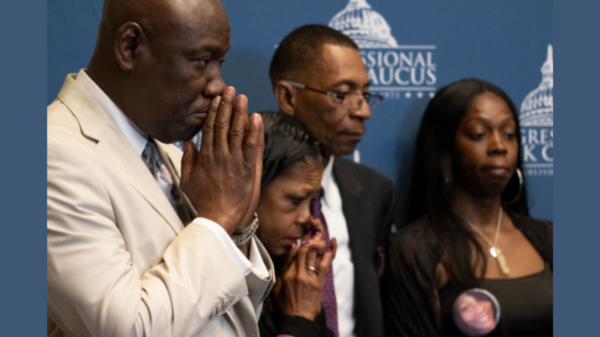By Helen Bezuneh,
Special to the AFRO
As the National Mall shimmered under the heat of the sun on Aug. 26, throngs of women from all walks of life made their way towards the Lincoln Memorial for the 60th anniversary of the March on Washington, donning shirts and wielding banners, flags and placards with varied slogans. Whether as speakers or march attendees, women evidently had a large presence at the event––and, according to the many who spoke with the AFRO, that’s no surprise.
“The women are the neck of the movement, and the head cannot operate without a neck,” said Darlene Petway, a 52-year-old CEO of PMC Business Solutions from D.C. who attended the march. “A neck cannot be without a head. Without women, we won’t go forward, we can’t go anywhere, we will fail as a whole.”
Standing close to the stage, members of the National Council of Negro Women (NCNW) stood out in the crowd as they wore their organization’s traditional purple and white colors.
Bridgette Hickey, a 53-year-old NCNW member and assistant deputy chief of staff for quality insurance for the United States Army Reserve from Brandywine, Md., is originally from Alabama and has been in the military for 34 years. She came to the march with fellow members of the council and spoke with the AFRO about her reasons for attending.
“Sixty years from now, I won’t be here. Sixty years ago, I wasn’t here. I attended an all-Black school, graduated in 1988, and it was a sea of all Black,” said Hickey. “From Alabama, we know about racism. But it didn’t stagnate our progress. It’s not where you come from, but it’s where you’re going.”
Just as they did in the 1963 march, women involved in churches and religious organizations also played pivotal roles in this year’s march. Bishop Vashti Murphy McKenzie, interim president and general secretary of the National Council of Churches, spoke with the AFRO after delivering an passionate speech to the crowd.
“Sixty years ago, my mother and aunts came to the March on Washington to cover it for the AFRO American Newspapers,” she said. “They got me out of summer camp to come. I didn’t understand the moment until later in life. But to be there at the historic, iconic march with my cousins, to be at the 50th anniversary and to be here today reminds us that justice work is never ‘one and done.’ Every generation must cross the Edmund Pettus bridge of its time to work for justice.”
LGBTQ+ activists also spoke to the crowd about how the civil rights movement must adequately engage with queer rights. Peppermint, a trans activist, actress, drag performer, and board member of the Gay and Lesbian Alliance Against Defamation (GLAAD), delivered a stirring speech and later spoke with the AFRO about the topic.
The activist said that the 2023 March “signifies how much work there is to be done.”
“What I love about this is we’re able to go back and redeem the stories of the LGBTQ people who have had a hand in many civil rights movements throughout history,” said Peppermint. “I feel really honored to stand on the steps of the memorial and speak to many communities I’m a part of about the importance of working together.”
Karen Long, a 60 year-old retiree from Houston, Texas with a background in luxury retail design and public relations, joined her sister, Kathy Thurman, a 63-year-old HR bank director who traveled from Boston. Together, the sisters held a sign with the words: “We March,” “We Rise,” “We Win.”
“I was like, ‘we have to come to this,’” Long told the AFRO. “One of my grandfathers was a professor of foreign language at Lincoln University in Missouri. He was a historian who always taught us that our blood was in this ground, that we are Amercians…he was a civil rights fighter in his own right. It’s in our DNA to fight for equality, to commemorate our ancestors, to commemorate progress, to commemorate history.”
Young women were also at the march, bringing a youthful sense of passion and energy to the event. Timiah Sinclair, a 20-year-old originally from Jacksonville, Fla. who goes to Florida A&M University (FAMU) as a business administration student, came to the march with Florida State University and FAMU’s NAACP.
“I chose to come here because I really think that the March on Washington that originated in 1963 is really now about continuation, we’re not commemorating what used to happen,” she said. “I think that women should not allow themselves to be minimized anymore. I think it’s important that people know that we’re here, we’re able to speak for ourselves, and that we should have choices over what we do and what we want to do with our bodies, our minds, and our spirits.”

You must be logged in to post a comment Login